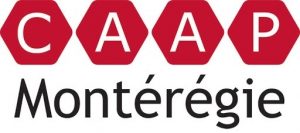Learn more about your health and social services rights
The importance of knowing your rights to ensure they are respected
Published on April 4, 2024 by Azalée Larouche. Journal Le Canada Français, page A-20.
Everyone who receives services or care from the health and social services network has rights, as defined in the Act respecting health and social services (LSSS). To ensure your rights are respected, it’s important to know what they are.
Today, we present the right to information:
- about available services and resources;
- on how to access them;
- on its state of health and well-being;
- on the options available to the individual;
- of any accident and the measures that will be taken.
Here’s the example of Josée (fictitious name), a good illustration of a breach of this fundamental right.
Health problems landed Josée in the hospital emergency room. She underwent blood tests and her pancreatic enzymes were found to be elevated. Josée also underwent a complementary ultrasound. A request has also been placed for an MRI and imaging to investigate further. Finally, a request for an oncology consultation is initiated.
She then met the oncologist, who told her where the metastases were. He told her she had stage 4 cancer, the most advanced stage. He suggested palliative chemotherapy. However, if chemotherapy doesn’t work, she’ll have to think about palliative care. When she asked the oncologist about his chemotherapy options, the doctor replied, “What good will it do you to know that?” The specialist’s words deeply hurt Josée. She reminded the doctor that in order to be able to give informed consent, she wanted to carry out research.
LACK OF INFORMATION
She underwent blood tests to find out whether her body could accept the chemotherapy treatments. At the second appointment, she finally had access to information about the various chemotherapies available to her.
In the event of her refusing treatment, Josée asked if she could count on the doctor to follow up on her illness. However, being an oncologist, the doctor told her no, no chemotherapy, no follow-up. To his dismay, he referred her to her family doctor.
In the meantime, Josée had to return to the emergency room, as she was in great pain. The doctor on duty asked him who was following up on his case. She replied that he was her family doctor, but that it was very difficult to get punctual appointments. In reality, it was as if she had no follow-up.
The doctor on call then asked if she had a palliative care team to help her. She had no idea what it was all about. He asked her if the oncologist had told her about the palliative care she was entitled to. This was not the case. The emergency physician, who was not a specialist in palliative care, was very surprised by this lack of information, and requested that Josée be given access to this care.
Without relevant information, the user cannot give free and informed consent to care.
COMPLAINT
As you can see from the example, it’s no coincidence that the right to information tops the list, since it’s the most important. Without relevant information, the user cannot give free and informed consent to care.
The oncologist received a reprimand in this case for his lack of humanity. Indeed, if he had taken the trouble to listen to his patient’s distress and inform her of the services available to her, it would have saved her a great deal of worry, and she could have had the support she so desperately needed to accompany her through her illness.
When Josée contacted us, we took the time to listen to her story, respecting her meaningful silences. We then proceeded to draft her complaint, while respecting her rhythm. We then formatted the complaint and she was able to send it to the Service Quality and Complaints Commissioner. The latter forwarded it to the assigned medical examiner.
It’s thanks to people like Josée that the complaints examination system contributes to improving services in the health and social services network.
CAAP MONTÉRÉGIE
CAAP Montérégie is one of the community organizations mandated by the Ministère de la Santé et des Services sociaux to help users file complaints in the public services sector.
We inform and guide users through the complaint process, assist them in writing and formatting their letter of complaint and, if necessary, refer users to the appropriate body.
All our services are non-judgmental and confidential, and we respect the user’s decision whether or not to continue with the process. This means that the user can end the process at any time, without having to justify himself.
If you think you need our services, don’t hesitate to contact us at 450 347-0670.



